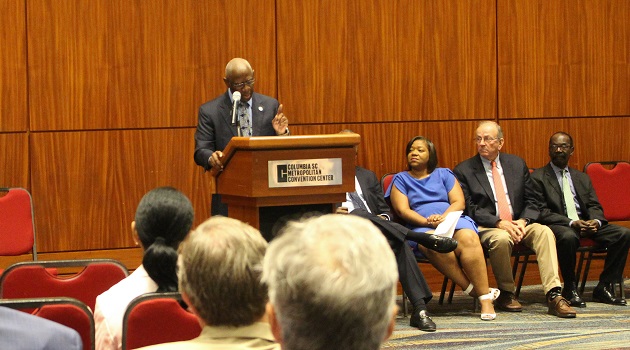Richland County and the City of Columbia are collaborating to jumpstart commercial development across the region.
Recently cited by SmartAsset as the number four U.S. city where millennials are moving, the Columbia, region offers residents and visitors a vibrant experience, with a thriving arts scene, a lush riverfront, a buzzing entrepreneurial culture and the long-term economic stability of the area’s major institutions.
Leaders across the Midlands, however, acknowledge a pent-up demand for hotels, retail businesses, workforce housing, office space, and parking.
In response, Richland County and the City of Columbia have developed a framework to stimulate commercial real estate investment, with a focus on projects that exceed $30M in taxable investment and incorporate a component of public infrastructure as part of the project.
Leaders at the city and county believe the new program will lead to new investments in public infrastructure, unleashing new development that has been constrained because of adverse tax law.
“County council is taking these steps to propel our community forward,” said Paul Livingston, chair of Richland County Council. “We’re taking measured, responsive steps to encourage additional investment across our region, and we’re excited about the potential developments that are just waiting to break ground.”
“This is a new day for the City,” said Columbia Mayor Steve Benjamin. “We’re ushering in a new era of development by actively engaging with private-sector investors who are building what our market wants. The demand is there for more affordable apartments, retail businesses, hotels, class A office space and more. We are taking action and doubling down — together — to address that demand.”
The new framework outlines a program that will reward investors who build public infrastructure, to include structured parking, improvements to roadways and pedestrian crossings, and other real property improvements that benefit the general public. The incentive is capped at 50 percent of the company’s tax payments and there is a renewable limit of ten years on the incentive. It is important to recognize that even at 50 percent tax abatement, the taxes that will be paid for each project will be a significant increase compared to what is currently being paid for vacant or underutilized properties that may otherwise remain unchanged.
“This new policy is the result of more than a year of council deliberations on how to encourage development — but also be equitable in how we treat all developers and our tax payers,” said Councilman Calvin “Chip” Jackson, chair of the Richland County Economic Development Committee. “We are committed to working with the city to increase investments that will benefit the entire community.”
Featured photo: Richland County Council Chair Paul Livingston discusses a joint effort by the County and the City of Columbia to spur commercial development in the region during a July 30 news conference.


